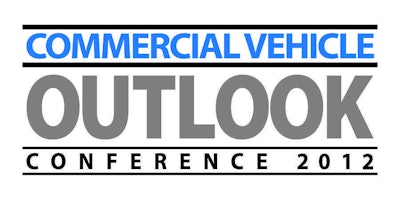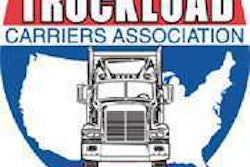
Employment law is becoming a major player in the legal landscape and changing the way employers must screen and hire employees, treat them while on the job and terminate them, an employment law attorney told an audience of fleet managers and executives Wednesday, Aug. 22, at the Commercial Vehicle Outlook Conference in Dallas.
For the trucking industry, disability and age-related issues could present problems for fleets hiring drivers and other employees, said Eddie Wayland, a partner with King and Ballow. Wayland said fleets and the industry as a whole now are “caught in a vortex,” acting as the middlemen between the changing medical requirements of the Federal Motor Carrier Safety Administration and the U.S. Equal Employment Opportunity Commission.
“Disability law requires reasonable accommodation,” Wayland said, and a 2009 amendment to the Americans with Disabilities Act says employers must work with employees to find solutions to any problems presented by their disabilities, including changing the work environment.
Medical screening done before a job offer also is illegal and grounds for a suit, he said. Fleets must offer a job first, then perform medical examinations before employment begins. Moreover, any medical or physical capacity tests must be consistent with those given to others hired for similar positions.
Federal law protects 11 categories from discrimination in the workplace: race, age, sex, religion, disability, color, pregnancy, national origin, veteran status, citizenship and genetic information.
There were 99,947 charges filed with EEOC last year – the most in history, Wayland said – and 2012 is on pace to top it. Race, sex, age and disability suits made up the large majority of charges, but cases based on religion are becoming more common each year. Not only are traditional religions protected, employees who have “sincerely held” religious beliefs also are protected from discrimination based on religious grounds, he said.
Common causes of discrimination claims include inconsistent application of policies, inadequate documentation of performance issues or other issues, reasons for discipline or termination that are not believable, unfair treatment of the employee, abusive treatment, comments related to protected classes and failing to respond to employee complaints or concerns.
Moreover, liability for employers has expanded to all managers and supervisors, including the lowest-level supervisors. The court has determined that those supervisors are acting as an agent for the company, and if lower-level supervisors discriminate employees based on any of the 11 protected categories – even if higher-level executives, managers or supervisors may not know – the company will be held liable.
Employers cannot discriminate based on gender identity, gender stereotypes or employees going through a gender change. Also, potential employees cannot be ruled immediately ineligible for employment at a company based on criminal background; EEOC is starting to require employers to treat each case individually and obtain information about a potential employee’s criminal background and whether it would impact his or her reliability or risk within the job’s capacity.
The rise of social media sites like Facebook and Twitter also has thrown employment law for a loop, Wayland said. The National Labor Review Board has said that when employees go on social media sites and post about the company, it’s protected as long as the employee discusses terms and conditions of employment in an attempt to spark discussion or group action with other employees, he said.
Wayland said that as far as social media policies for companies are concerned, it’s best to not have a blanket “nothing negative can be said about the company” policy, though it is good practice to have some type of policy.












